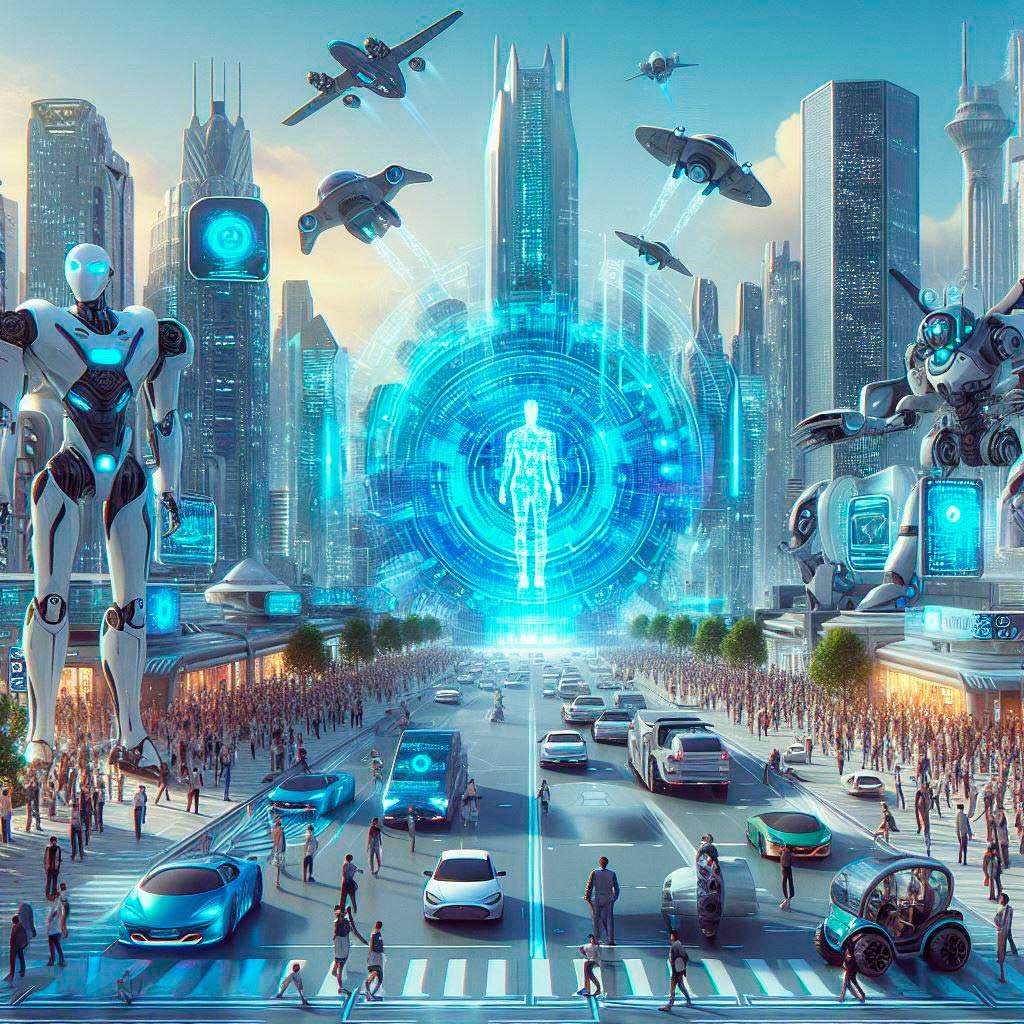
What does it mean to achieve technological uniqueness?
In recent years, the development of artificial intelligence (AI) has transformed various industries and generated intense debates about its impact on humanity. One of the most fascinating concepts within this field is the technological singularity, a theoretical moment when technological progress would reach a point of no return, radically changing society as we know it.
Recently, Sam Altman, CEO of OpenAI, has made optimistic claims in this regard. According to Altman, we could be on the doorstep of this phenomenon, predicting that the technological singularity could occur as soon as 2025. But what exactly does this concept mean and what are the implications?
What is technological uniqueness?
The technological singularity refers to the moment when machines equal or surpass human intelligence, giving rise to an “intelligence explosion”. This would imply that machines could not only perform complex tasks, but also improve themselves. According to Oxford philosopher Nick Bostrom, this process could trigger a cycle in which each new generation of machines would be smarter than the last, causing an exponential acceleration in technological development.
Possible singularity triggers include advances in areas such as:
- Artificial General Intelligence (AGI): An AI capable of performing any human intellectual task.
- Quantum computing: Technologies that would solve problems that are impossible for current systems today.
- Genetic engineering and bioengineering: Radical transformations in human biology and other life forms.
- Advanced networks of specialized IAs: Collaboration among multiple IAs focused on specific tasks could produce results equivalent to an AGI.
Sam Altman’s optimism: AGI in 2025?
In a recent interview with Y Combinator, Altman stated that the creation of AGI is, at this point, an engineering problem, and he assured that the roadmap to achieve it is quite clear. According to him, we could see the first signs of AGI as soon as 2025.
Back in 2017, Altman published an article entitled TheMerge, where he talked about the gradual integration between humans and machines. For Altman, this merger is already happening: mobiles, social networks and search engines influence our decisions, emotions and thoughts, a phenomenon he considers the first steps towards the singularity.
However, while Altman is optimistic about the advancement of AGI, his stance on its impact is surprising. At the World Economic Forum in Davos in 2023, he stated that this technology “will impact work and society less than we think.” For him, AGI will be an incredible productivity tool, but it will not bring about an immediate revolution.

Are we already living the transformation?
Altman’s position could be interpreted as a way of pointing out that technology-driven changes are already happening. According to him, society could experience continuous improvements in technology without perceiving an immediate radical change. This contrasts with the view of other experts, such as Ray Kurzweil, who predicts that the singularity will bring profound and extraordinary changes in the way we live.
In fact, the apparent contradiction between Altman’s optimism and his skepticism about the impact of AGI could be explained through his perspective that humanity is adapting gradually. For Altman, this process will not be a “big bang,” but a continuous transition that will culminate in a profound, but not sudden, transformation.
Are we ready for the technological singularity?
The prospect of the technological singularity arriving in 2025 is equal parts fascinating and worrying. While figures such as Sam Altman argue that the impact will be incremental, the mere attainment of AGI or similar technologies could unleash profound changes in the way we work, live and interact.
However, beyond dates and forecasts, ethical, social and economic preparedness for these advances will be key. Debates about the regulation of AI, the impact on employment and the redistribution of technological benefits are more relevant than ever.
For those who want to explore and harness the potential of these technologies, tools like Easy-task.ai can be an important step toward adapting to an increasingly digital and interconnected future. As we move toward this potential singularity, having innovative and accessible solutions will be essential to navigating the change.
